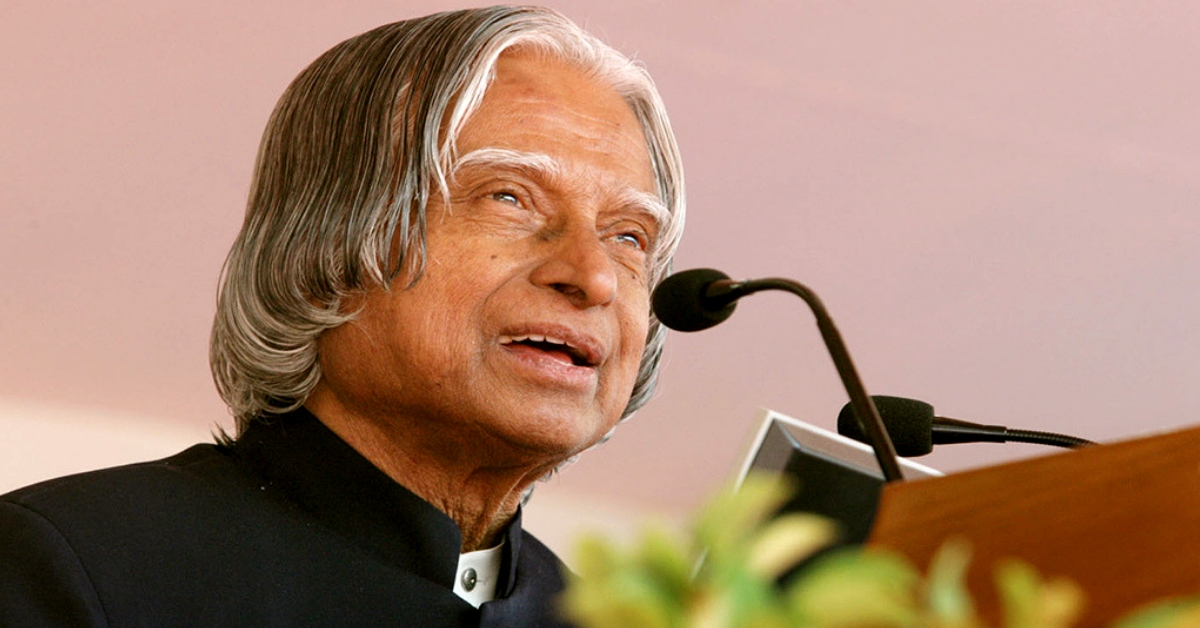Nearly 13 years ago, the late APJ Abdul Kalam, who was the President of India at the time, visited a nondescript hamlet in the Igatpuri taluk of Nashik district, Maharashtra, as part of the Centre’s orchard project to promote horticulture in tribal villages.
Vaitagwadi (meaning ‘irritating hamlet’) is what the hamlet was known back then, and it was mostly inaccessible with no pucca road and a non-existent water supply system.
The residents of the hamlet would practice paddy cultivation through step farming in the monsoon season, and for the rest of year, they would leave in search of work elsewhere.
President Kalam’s visit, however, changed the face of this hamlet, reports Times of India. Not only did the former president suggest that the hamlet change its name (today it’s called Ashakiranwadi), but also inspired locals to take the bull by the horns and initiate transformative change.

Today, there is a tap outside every home, and all connecting roads to the hamlet are pucca. More critically, however, is that while the rest of Igatpuri taluk is suffering from drought, this hamlet has more than sufficient amounts of drinking water.
Following President Kalam’s visit, local authorities approved the construction of a 10,000-litre capacity water tank under the Central government’s Bharat Nirman scheme, and the following year, the benefits of this scheme were extended to five other hamlets in the vicinity. Thanks to the water tank, local tribal villagers no longer have to walk long distances to fetch water.
“Groups of eight to ten farmers were formed. Water was brought to the village from Darna river with the help of small pumps. Now, there is a water tap outside every house. Women no longer need to carry drums on their bicycles. Moreover, 50% of farmers grow vegetables in the hamlet,” said Somnath Joshi, a member of the local panchayat today, while speaking to the Times of India.
Besides a water tank, the hamlet will also soon benefit from the completion of a lift irrigation project, which will serve water across 1200 acres. This will assist in also planting of fruit trees like mango and cashew nut, which marks a major change from just paddy cultivation 13 years ago. Today, the hamlet also has a primary healthcare centre in its vicinity, which saves residents both time and money they would otherwise spend on a private facility far away.
Also Read: Labourer’s Son Used to Earn Rs 150/Month. His Company Is Worth $500 Mn Today!
“Earlier, it used to be very difficult for us as we had to constantly think of getting water. Now, we have water for farming as well. The 10,000 litres water tank constructed a few years back is a boon. We have roads within the village and also connecting other villages,” said Jayshree Benkoli, the sarpanch of the village, to the daily publication.
Kalam’s visit, they believe, changed the hamlet for good. One farmer even told the daily publication that the former president had “showed us the path to develop our village.”
That’s some incredible impact!
(Edited by Gayatri Mishra)
Like this story? Or have something to share? Write to us: contact@thebetterindia.com, or connect with us on Facebook and Twitter.
If you found our stories insightful, informative, or even just enjoyable, we invite you to consider making a voluntary payment to support the work we do at The Better India. Your contribution helps us continue producing quality content that educates, inspires, and drives positive change.
Choose one of the payment options below for your contribution-
By paying for the stories you value, you directly contribute to sustaining our efforts focused on making a difference in the world. Together, let's ensure that impactful stories continue to be told and shared, enriching lives and communities alike.
Thank you for your support. Here are some frequently asked questions you might find helpful to know why you are contributing?
